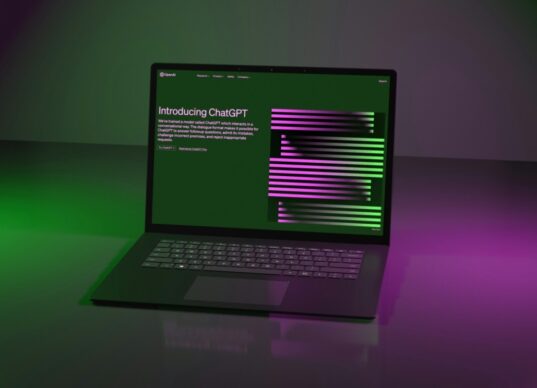Our customers have been hired by: *Foot Note
How to start a cover letter? Your cover letter’s opening is where you make your first impression, and it’s crucial to get it right. In this guide, tailored for entry-level job seekers in the UK, we’ll walk you through the essential steps on starting a cover letter effectively.
The way you begin your cover letter can make all the difference in grabbing the hiring manager’s attention. It serves as your initial point of contact with potential employers and is your opportunity to set the right tone. In this article, we will provide a detailed guide on how to start a cover letter effectively, offering valuable insights, examples, and advice specifically tailored to entry-level employees in the UK.
Starting a Cover Letter
The opening lines of your cover letter are your opportunity to make a lasting impression.
Their goal is to set the stage for the entire document. When you apply for a job, dozens, if not hundreds, of other candidates with similar job profiles submit their CVs along with you. Writing a CV is the first step to getting a recruiter’s attention, but only pairing it with a convincing cover letter can get you an interview.
Many candidates send generic letters to many openings, often filled with standard forms that hiring managers have read many, many times before.
How do you make sure you stand out?
Here’s how to start a cover letter effectively.
Express Enthusiasm:
Begin with a statement that demonstrates your excitement about the job opportunity. For instance:
“I am thrilled to apply for the Sales Manager role at Uniquemmerce, as it perfectly matches with my passion for sales and my ambition to work for an environmentally-conscious and industry-leading organisation.”
Mention the Job Title:
Make sure to state the position you are applying for to avoid any confusion or getting lost among other openings in the company. For example:
“I am sending this application to express my interest in the Sales Manager position at Uniquemmerce Company.”
Source of Information:
Let the recruiter know how you learned about the job posting. This shows that you’re proactive and engaged in your job search:
“Interested in working for your company, I found an opening for this sales manager position on your company website.”
Get the reader’s interest:
Engage the reader’s attention by addressing a specific need or challenge the company is facing. This will show not only your genuine interest in the company, but will demonstrate why you are a valuable asset:
“With my passion for marketing and a proven track record of steady growth, I am confident in my ability to contribute to Uniquemmerce’s expanding marketing initiatives.”
Quantified achievements:
Appeal to the recruiter’s imagination by presenting your achievements in precise figures rather than vague qualities. For example:
“Thanks to my active involvement in running new marketing campaigns, I have increased my current company’s revenue by 9% compared to last year.”
How to Address a Cover Letter
Writing a cover letter can be challenging, so first things first: how to address it?
Addressing your cover letter correctly demonstrates professionalism.
Follow these guidelines:
Use the Hiring Manager’s Name
Whenever possible, address the cover letter to the hiring manager or the person responsible for recruitment. Look for this information on the job posting, the company’s website, LinkedIn, or by making a phone call.
When you find it, simply start with:
“Dear Mr. Smith,”
Important tip:
Ensure the recipient’s name is spelled correctly. Attention to detail is essential here.
How to address a cover letter with no name
If you exhausted all possible ways to identify the recipient’s name and you still can’t find it, using a generic salutation is acceptable.
Generally, you have two possible options:
Option 1.
Use a general greeting such as:
“Dear Hiring Manager,”
You may remember the phrase that was once commonly used:
“To whom it may concern”.
Well, used is key here. Nowadays it is a rather outdated, impersonal phrasing that is better avoided.
Option 2.
Use a Department’s Name, for example:
“Dear Human Resources”
“Dear Hiring Executives”
“Dear Sales Team”
Tips for writing a cover letter opening
When you start a cover letter, make sure to choose your words carefully. Your goal is to convey confidence, enthusiasm, and professionalism.
Like here:
So, instead of blunt, easy-to-forget expressions, incorporate into your letter:
Power Words: Use strong action verbs to describe your accomplishments.
Here’s the list of top 10 action verbs you can use:
- Achieved
- Managed
- Developed
- Implemented
- Increased
- Collaborated
- Solved
- Led
- Negotiated
- Innovated
Tailored Language: Tailor your language to match the job description. Use keywords and phrases from the job posting to show your alignment with the role. It’s important to adjust the letter to each opening. Make sure you double check the position and company name before sending your letter!
Positive Language: Keep your tone positive and avoid negative language. Emphasise your achievements and abilities. Incorporate phrases that demonstrate your eagerness, such as:
- "I am excited about the opportunity to..."
- "I am eager to contribute my skills and expertise to..."
- "I am enthusiastic about the prospect of..."
- "I am passionate about marketing, and I am ready to apply my knowledge to..."
- "I am looking forward to the opportunity to learn and grow within the company..."
Best way to start a Cover Letter for different roles
Of course, you want your cover letter to be personal and tailored to the job. However, reading through some example cover letters can serve as inspiration and guidance for writing your own great application.
Take a look at the following sample cover letter introductions for different professions.
How to start a cover letter for a Marketing Role:
“I am excited to apply for the Marketing Coordinator position at ABC Sales. Having recently completed my Master’s degree in Marketing and gained hands-on experience during my internship at Marketing Masters Agency, I am well-prepared and ready to contribute to your dynamic team and learn from the experience of your professionals.”
How to start a cover letter for a Finance Role:
“I am writing to express my interest in the Finance Advisor position at BankSol Services, as advertised on your website. I believe that my strong analytical skills, combined with exceptional attention to detail, customer focus and great communication skills make me a great match for your company”
How to start a cover letter for a Customer Service Role:
“I am enthusiastic about the opportunity to join your team as a Customer Service Representative at UConnect. Having a background in retail and a passion for customer relations, I am confident in my ability to provide exceptional service and contribute to your company’s reputation for outstanding support.”
How to Start a Cover Letter: Mistakes to Avoid
Don't forget to check out this list of common cover letter mistakes. Make sure to avoid them and increase your chances of getting a new job now.
Here’s what to avoid:
Using generic openings when the recruiter’s name is easy to identify: Starting with phrases like "To Whom It May Concern" or "Dear Sir/Madam" can make your cover letter seem impersonal.
Using overly formal language: While professionalism is important, overly formal language can make you seem unapproachable, or even arrogant. Strike a balance between professionalism and authenticity and use a tone that’s most suitable to the position you’re applying for. For example, a letter for a bartender position will have a more casual tone than a letter for an accountant.
Not mentioning the company’s name: Doing so will give the impression that you are sending the same generic cover letter to multiple positions. This, in turn, may be perceived as a lack of genuine interest in working for that particular company. Tailor your opening to the specific role and company.
Forgetting to proofread: Spelling and grammatical errors in your opening can create a negative impression, especially if you mention attention to detail as one of your skills. Proofread your cover letter meticulously. Pay special attention to the correct spelling of the recruiter’s and company’s name.
Write a cover letter that will launch your career
Crafting the perfect cover letter introduction is an essential step in your job search journey. By following the tips outlined in this guide, you’ll be well on your way to creating a captivating start to your cover letter that engages potential employers and sets you apart from the competition. Remember to address the recipient professionally, choose your words wisely, and avoid common mistakes. With dedication and a well-crafted cover letter, paired with a well-rounded CV, you’ll increase your chances of landing that dream job. Good luck!
Jagoda Jaskowicz
Senior Content Editor, SEO Content Writer
Meet Jagoda Jaskowicz – a certified copywriter, Polish language translator, and seasoned career adviser. Thriving on constant self-improvement, she eagerly stays ahead in her field. With a rich background working with individuals from over 50 countries, Jagoda has successfully completed more than a thousand projects in copywriting and translation.
*The names and logos of the companies referred to above are all trademarks of their respective holders. Unless specifically stated otherwise, such references are not intended to imply any affiliation or association with myperfectCV.








